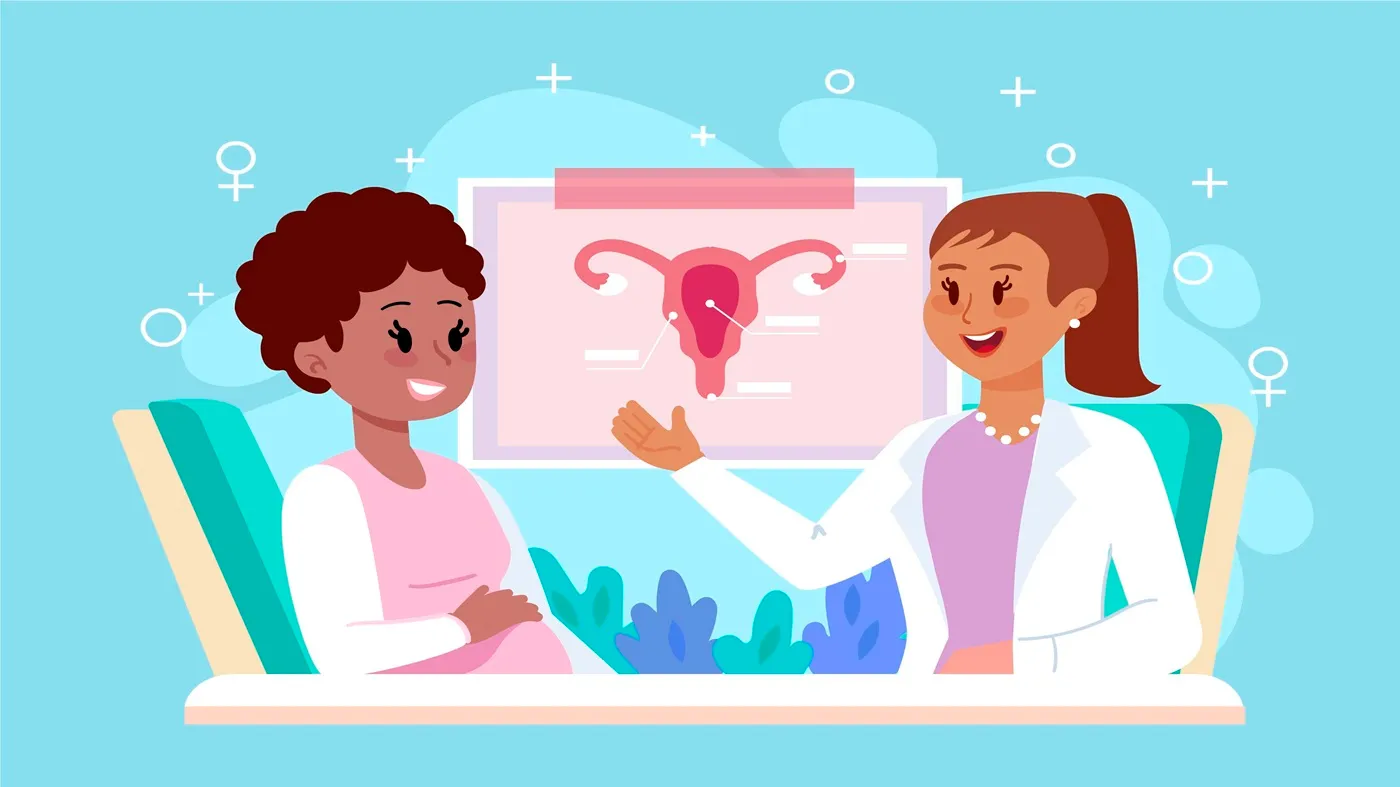
Polycystic Ovarian Syndrome (PCOS) is a condition that affects up to 20% of women in their reproductive years. It’s known for causing hormonal imbalances which can lead to a variety of symptoms and challenges, particularly concerning fertility.
Women with PCOS typically have higher levels of luteinizing hormone (LH) which is crucial for ovulation, and lower levels of follicle-stimulating hormone (FSH) necessary for reproductive organ function. This hormonal imbalance in PCOS sufferers leads to the underproduction of Estrogen, a primary female sex hormone, and an overproduction of androgens, which are typically considered male hormones. The resulting effects include the development of small cysts on the ovaries, a thickened ovarian outer layer, and increased insulin levels in the bloodstream.
Due to these hormonal irregularities, women with PCOS often experience varied menstrual cycles, and many have difficulties with ovulation, which can reduce their likelihood of conceiving naturally.
The exact causes of PCOS remain unknown, but both genetics and environmental factors are thought to play a role. Women with PCOS tend to have higher androgen levels, which can inhibit the release of eggs during the menstrual cycle as well as contribute to symptoms like excessive hair growth and acne. Additionally, these women often show higher insulin levels, which is a key factor in energy conversion from food and is associated with insulin resistance.
Symptoms of PCOS can include:
– Irregular or infrequent menstrual periods
– Excess facial hair
– Acne
– Hair thinning on the scalp
– Weight gain
– Darkening of the skin and skin tags
– Ovarian cysts
– Fertility issues
PCOS can develop any time after puberty, with most diagnoses occurring when women are in their 20s and 30s, often as they attempt to conceive. Women with a family history of PCOS or who struggle with obesity may have a heightened risk of developing the syndrome.
In terms of treatment, lifestyle modifications are the first step in managing PCOS symptoms and enhancing fertility. Losing a moderate amount of weight can have a significant impact on insulin and hormone levels, which in turn can regulate menstrual cycles and promote ovulation.
A healthy diet and regular physical activity are paramount for managing hormonal imbalances and lowering insulin levels. It’s crucial to focus on consuming whole foods like fruits, vegetables, whole grains, lean protein, and healthy fats while avoiding high-sugar, fried, and processed foods.
Regarding fertility, living a healthy lifestyle is essential for all women trying to conceive, and even more so for those with PCOS. Preconception check-ups are advisable for personalized advice and to discuss potential fertility challenges due to PCOS. For overweight women with PCOS, even slight weight loss can lead to more regular ovulation and increased chances of conception. Knowing one’s fertile window and timing intercourse accordingly can also improve the likelihood of getting pregnant.
Diagnostic tests for PCOS typically involve blood work to check for elevated testosterone and LH levels, which can fluctuate and are best checked early in the menstrual cycle. Blood tests can also identify changes in glucose and insulin levels.
While PCOS can indeed make it harder to conceive due to its impact on ovulation, it doesn’t render pregnancy impossible. With medical intervention and fertility treatments, many women with PCOS can successfully conceive. Always use contraception if you do not wish to conceive because PCOS does not completely eliminate the possibility of pregnancy.
Women experiencing symptoms of PCOS should consult their doctor for a diagnosis and treatment plan. The earlier treatment for PCOS begins, especially for those planning to conceive, the better.
Fertility treatments for PCOS primarily focus on correcting ovulation problems and addressing metabolic issues like insulin resistance. Medical interventions may include medications to stimulate ovulation, insulin-sensitizing drugs, and, in some cases, surgery to help stimulate ovulation. If these treatments are unsuccessful, in vitro fertilization (IVF) may be considered as an option. This process involves stimulating the ovaries to produce multiple eggs, which are then retrieved, fertilized in a lab, and implanted in the uterus with the aim of achieving pregnancy.
Despite fertility challenges, statistics show that women with PCOS have a similar number of children as women without the syndrome. It’s important to recognize that while PCOS can present obstacles to conception, effective contraception is still necessary to prevent unintended pregnancy.